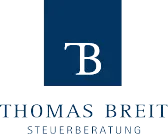Have you ever wondered what will happen to your business in the event of your death? Will it be dissolved or will the shares be passed on to your heirs?
Again and again entrepreneurs come to me with these questions. When it comes to company succession in particular, there is a lot of uncertainty. Understandably, many entrepreneurs are worried that their life’s work may end up in the wrong hands.
With this blog post, I would like to answer the most common questions my clients have about this issue. You will learn about how the death of a company owner is handled in different legal forms (sole proprietor, KG and GmbH) and what the legal consequences are for their heirs.
In fact, it is the legal form that primarily determines whether a company is automatically dissolved or can seamlessly continue. In the next section, I will explain in detail what effect the death of the entrepreneur has on sole proprietorships, KGs and GmbHs.
What happens when an entrepreneur dies and has a…
…sole proprietorship?
Here one must distinguish between civil law and tax law.
Under civil law, it depends on whether the deceased entrepreneur was registered as a sole trader (eingetragenen Kaufmann e.K.) or not. If the deceased was not a registered sole trader, the business is “invisible” under civil law and is dissolved upon death.
If the entrepreneur was registered as sole trader the business always passes to the heirs.
Under tax law, it makes no difference whether one was a registered sole trader or not.
The heirs always have six months to decide whether they want to continue the business or not.
If the business is not continued, it is considered to be terminated retroactively as of the last day of life. Then a closing balance sheet must also be made as of this date for tax purposes. If the profit was not previously determined with a balance sheet, a reconciliation statement must also be made.
The business is then deemed to be dissolved. Possible tax liabilities are passed on to the estate and must be settled by the heirs. In the same way, any tax claims are also passed on to the estate. In this case, the heir(s) can benefit from a possible tax refund.
If they decide to continue running the company, they do not have to carry out these steps, they can simply continue the business.
…limited partnership KG?
In the case of a limited partnership (Kommanditgesellschaft KG), succession depends on the company’s articles of association. This is because company law takes precedence over inheritance law here.
There are three possible scenarios for limited partners:
- No succession provision in the articles of association:In this case, the shares pass to the persons already participating in the partnership. As an heir, however, you do not go away empty-handed, but are entitled to a capital settlement. In legal terms, this procedure is referred to as accrual (Anwachsung).
- Qualified succession:In this case, the person who succeeds you is named in the articles of association. Other legal heirs are entitled to a lump-sum settlement.
- Simple succession:It is stipulated in the articles of association that the legal heirs will receive the company shares. If there are several heirs, each one becomes a partner in the KG.
In the case of general partners, it depends on whether the general partner is a natural person or a legal entity.
If the deceased is a general partner as a natural person, the law of succession applies. This means that their shares are divided among the legal heirs.
However, in the case of a GmbH & Co. KG the situation is different. Here, the GmbH is the general partner. If the shares in the GmbH are in turn held by the KG itself, the deceased partner’s shares are distributed in the same way as in the case of limited partners.
…limited liability company GmbH?
Similar to the KG, the succession regulations for a GmbH depend on the articles of association of the company.
Here there are three possible situations:
- Redemption clause in the articles of association:If there is a redemption clause, the shares are transferred to shareholders who are already involved. The legal heirs of the deceased partner are entitled to a capital settlement, but do not become shareholders. This is comparable to “accrual (Anwachsung)” in a KG.
- Transfer clause in the articles of association:Here, the shares are bequeathed to a person designated in the articles of association. A transfer clause is therefore comparable to the qualified succession provision in KG.
- No succession provision in the articles of association:In this case, the shares go to the legal heirs. If there are several heirs, each of them becomes a shareholder in the GmbH.
Therefore, think carefully about what should happen to your shares in the event of your death and, if necessary, include a provision in the articles of association.
What does this mean for your heirs? Inheritance tax!
If your shares in the company pass to your legal heirs, they are liable for inheritance tax. If you and your company have not prepared for the transfer, your heirs can be burdened with thousands of euros in inheritance tax.
However, if you have planned ahead and optimized your business, you can pass on your shares without burdening your heirs with a high tax bill.
Conclusion: The legal form and articles of association are crucial in the event of death
The impact of an entrepreneur’s death depends primarily on the company’s legal form and the provisions enshrined (or not enshrined) in the articles of association. The articles of association can, for example, name a certain person as the successor.
However, it may also be stipulated that your shares go to your co-partners and that your heirs only receive a capital settlement.
To ensure that what you want to happen to your shares really does happen, it is therefore essential that you start company succession planning in good time. Because in order for the succession to be legally clear cut and optimized from a tax point of view, it must be planned several years in advance.
If you have any further questions on the subject or would you like to know how best to plan your company succession,
you are welcome to contact me with your questions. The initial telephone conversation is without any obligation. After all, you want to make sure that I am the right tax consultant for you.
You can contact me at any time by phone (+49 40 44 33 11), e-mail (anfrage@steuerberatung-breit.de), via my contact form or at my tax consultancy office in Hamburg.
Kind regards,
Thomas Breit
Photo: © Rawpixel.com – stock.adobe.com



